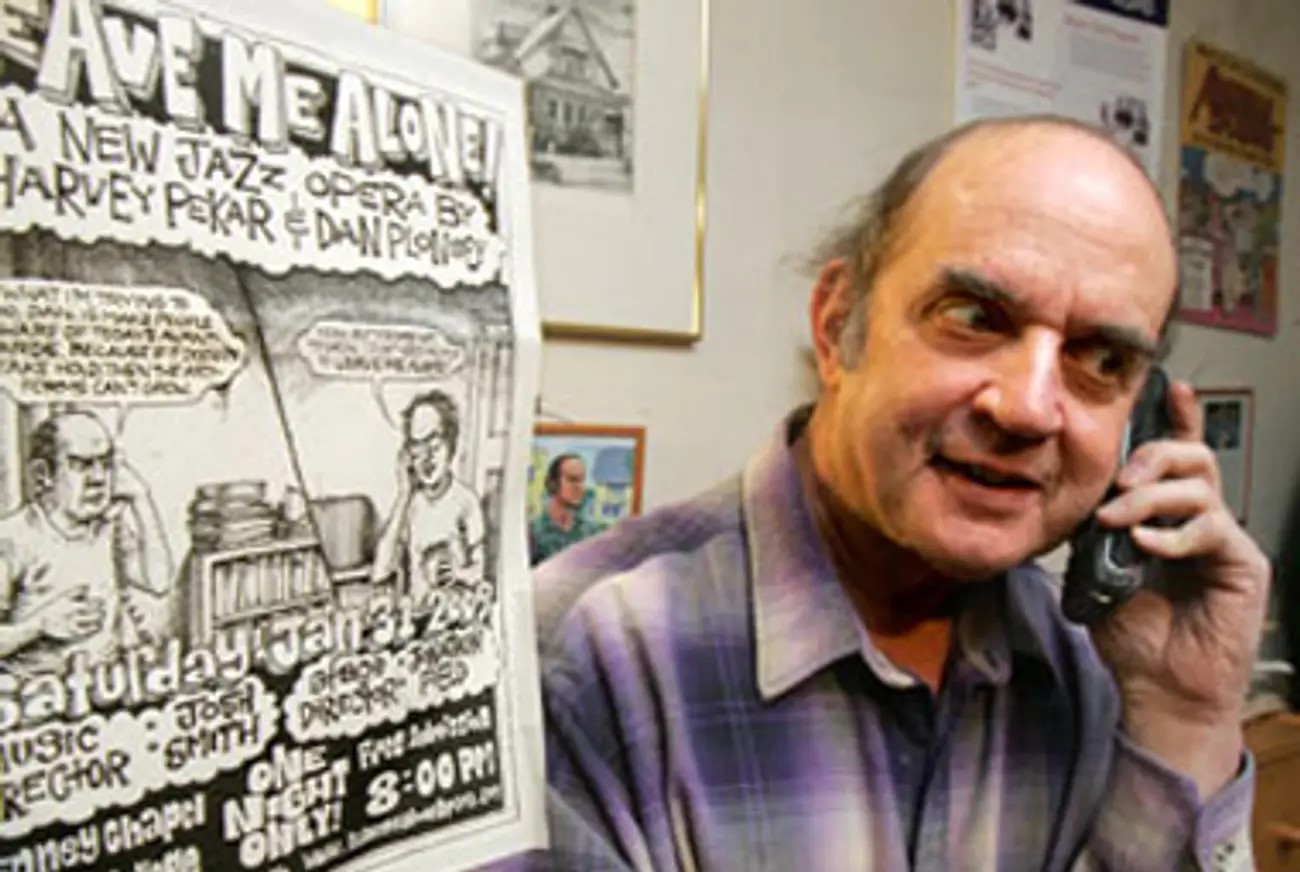American underground comic book writer: Who is Harvey Pekar?
Born in Cleveland, Ohio, Harvey Lawrence Pekar worked as a file clerk in a US public hospital for 37 years. Unlike many superhero-focused comics, he brought a different dimension to comics by telling the ordinary story of a normal person.

He is an American underground comic writer, free jazz, and book reviewer.
Unlike many superhero-focused comics, it brought a different dimension to comics by telling the ordinary story of a normal person.
'American Splendor', which presents sections from Pekar's daily life in Ohio and was first published in 1979 and adapted for the big screen in 2003, received awards at many festivals, especially Sundance and Cannes.
Harvey Lawrence Pekar (October 8, 1939 – July 12, 2010) was an American underground comic book writer, music critic, and media personality, best known for his autobiographical American Splendor comic series. In 2003, the series inspired a well-received film adaptation of the same name.
Harvey Lawrence Pekar, who described his daily life as a comic book with 'American Splendor', was found dead in his home by his wife on the morning of July 12, 2010.
Life story
Comic book writer Harvey Pekar died on July 12, 2010, at the age of 70. Film buffs may remember Pekar from 'American Splendor', which won an award at the Sundance Film Festival in 2003.
The movie was based on the comic book of the same name. The comic book was already Pekar's life story.
Those who don't know him might think, "He's such an interesting guy whose life is a comic book."
No, Pekar had a very ordinary life.
He was the type of person who lived almost never leaving his hometown of Cleveland, wallowing in life.
STORY OF THOSE WHO SAVE
This few-page, very placid (almost all of them are like this!) story, written by Pekar and drawn by Robert Crumb, begins as follows: “I have always collected things since my childhood. For a while, it was comic books, then came magazines and books about sports. I started collecting jazz records when I was 16. In the beginning, and for a long time, it was a healthy, normal job. I loved jazz; I was followed closely and was a careful listener.
I continued collecting sensibly for a long time. I would only buy albums that I would enjoy listening to or that I knew had historical significance.
But then at some point, I became obsessed; I started buying records just because they had collection value, even though I knew I wouldn't listen to them.
My condition gradually worsened. I started following auctions, chasing rare records, and spending fantastic amounts of money. I started spending all my money on records that I put on the shelf without listening to them once. I was starting to think twice before spending money even to go to the movies or eat a hamburger..."
BORING BUT TRUE
The story is familiar not only to me but to all collectors.
As someone who went through exactly the stages he mentioned, I felt like I was looking in the mirror while reading the story.
Adventure (!); narrator Harvey Pekar says at one point, “Enough!” and ends with him announcing that he has saved enough money to print American Splendor. This much!
Another adventure takes place in the supermarket. He just talks about his boredom with the slow and unnecessarily obsessive people in front of him while waiting in the queue.
In another, he tells how he persuaded Robert Crumb to draw his adventures by 'shaking him', exploiting his emotions, and tiring him out.
In one adventure there is a man selling pickled okra, in another adventure there is a man who answers the phone by saying "Before noon"...
Isn't it boring?
Maybe, but it's real, it's sincere, it can happen to anyone, it's simple, and it creates a strange addiction.
In his foreword to American Splendor, Crumb said, “When I met Pekar in 1962, he was a guy with abstract paintings hanging in his house, a modern jazz enthusiast, and a house full of books. "20 years later, the view was the same, only everything was a little dusty," he says.
HE TOLD ABOUT A GOOD LIFE
So how did such an 'ordinary' man create a small but loyal fan base by telling about his ordinary life?
How did his life become a movie? How did this movie win an award?
It's hard for me to come up with an answer other than saying, "Seinfeld was successful the way he was."
